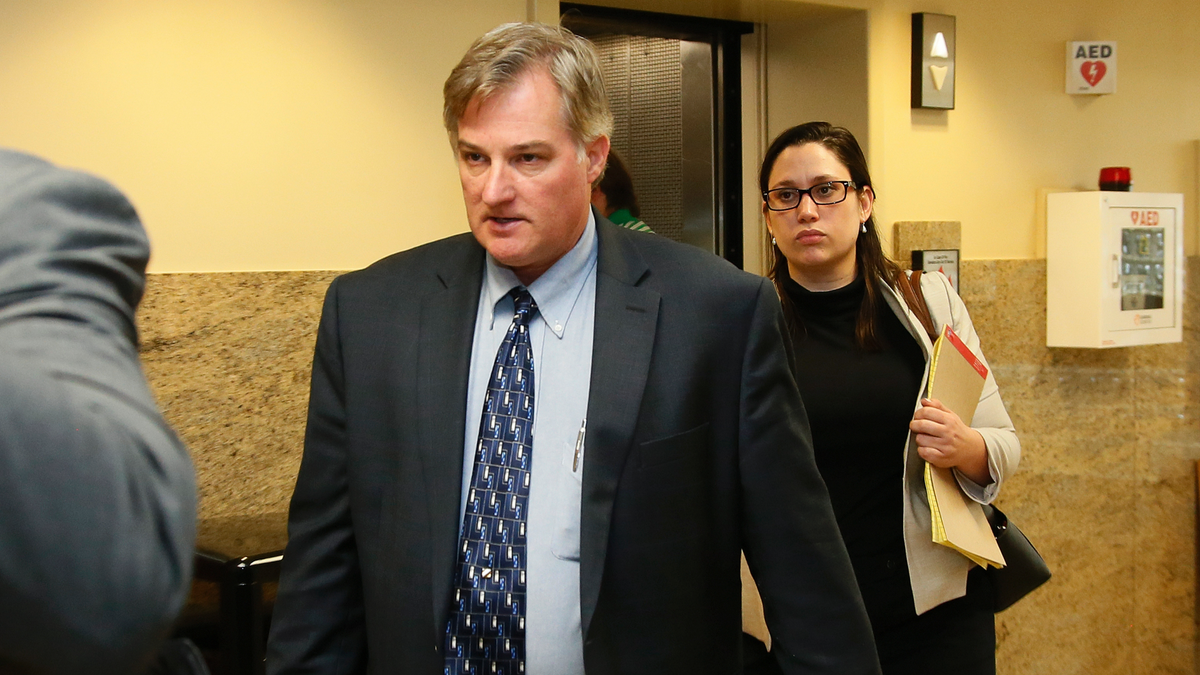
TULSA, Okla. – A self-defense claim by a white former Oklahoma police officer who fatally shot his daughter's black boyfriend cast enough doubt for jurors to convict him on the lesser charge of manslaughter instead of first-degree murder, the jury forewoman said.
Jurors convicted ex-Tulsa officer Shannon Kepler on Oct. 18 in his fourth jury trial for killing of 19-year-old Jeremey Lake in August 2014. The first three juries deadlocked 11-1, 10-2 and 6-6, forcing the judge to declare mistrials.
Sarah Arroyo, forewoman of the fourth jury, told The Associated Press this week that it didn't take long to decide Kepler was guilty. But she said most of the panel's roughly six hours of deliberations centered on whether prosecutors had presented enough evidence to warrant a first-degree murder conviction, which carries a life sentence.
In deciding on manslaughter, Arroyo said jurors took into account that "emotions were running pretty high" the night of the confrontation and the shooting happened at dark on a dimly-lit street near an overpass. She said some jurors were reluctant to put the 24-year police veteran, who was off duty at the time of the shooting, behind bars for life. They recommended 15 years in prison. Kepler will be sentenced Nov. 20.
A few jurors had a hard time with the murder charge because they believed evidence still left room for reasonable doubt, Arroyo said.
"It seemed that self-defense was possible," said Arroyo, 23. "They struggled at putting a man in prison for life without knowing."
Kepler took the stand in all four trials and repeatedly told jurors that he had no choice but to shoot because Lake had a gun. No gun was found on or near Lake's body, and several witnesses who rushed to the scene where Lake lay dying testified they saw no weapon.
Lake's aunt disputed Kepler's self-defense account and has said her nephew was reaching out to shake Kepler's hand to introduce himself when Kepler fired. Prosecutors said Kepler first watched his daughter, who was 18 at the time, and Lake from his SUV before approaching them on the street.
Arroyo said those dueling accounts bolstered jurors' decision to convict Kepler on the lesser charge. She said jurors also found Kepler believable and "remorseful" during his testimony.
"Things aren't as black and white as you'd believe," she said. "There is a gray area."
Despite public outcry in recent years over police shootings of young black men throughout the U.S., few officers are prosecuted, and even fewer are convicted.
Richard O'Carroll, Kepler's defense attorney, on Thursday accused the district attorney's office of exploiting Lake's race to politicize the case. O'Carroll said jurors shouldn't have even been allowed to consider the manslaughter charge, and said prosecutors only gave jurors that option because they feared losing another trial.
"I believe there was tremendous pressure on the jury to get a result," O'Carroll said, adding that prosecutors needed a victory because of the three previous mistrials. "They came to a result for the sake of coming to a result."
Arroyo, who is Hispanic, said jurors were aware of the previous trials and that race was an undercurrent in all of them, but said the panel did its best to limit discussions to "the evidence of the case."
Tulsa County District Attorney Steve Kunzweiler denied there was a political agenda. He said his office kept putting Kepler on trial because of the circumstances of the crime.
"A 19-year-old citizen in my community was gunned down in the middle of the street and the perpetrator fled the scene," Kunzweiler said. "I am going to prosecute that guy vigorously because he deserves it. It had nothing to do with politics."

